ANALYSIS: By Yamin Kogoya in Brisbane
Google images of a country or region can offer a wealth of information about the people and cultures that live there. Some images accurately portray reality while others present camouflage, attempting to deceive or twist our perception.
From a marketing standpoint, it’s all about selling the national identity, brands and products.
When you type “West Papua” or “West Papua genocide” into Google Image search, you are immediately confronted with some of the grossest human rights violations on Earth.
Images of other Melanesian island countries, conversely, display pristine, exotic beauty, presenting them as an ideal vocational playground for first-world self-exhausted tourists.
West Papua is a region where its public image is produced and controlled by those who want West Papua to mould to and represent their modern, capitalist ideals.
On the one hand, we have images of West Papua representing a hidden heaven on earth, with majestic glaciers, mountains, lush lowlands, mangrove swamps along the coastline, and coral reefs with a rich biodiversity.
On the other hand, we see images of Indonesian soldiers torturing, killing, bombing, and destroying ancestral homelands; we see images of West Papuan freedom fighters in their jungles with modern machine guns, performing their cultural rituals while declaring war on the Indonesian military.
Freeport’s gigantic hole – a graveyard for Papuans
At the centre of this tragic display of contradiction is the image of a giant gaping hole right in the middle of West Papua’s magnificent ancient glacier — a sacred home of local indigenous people.
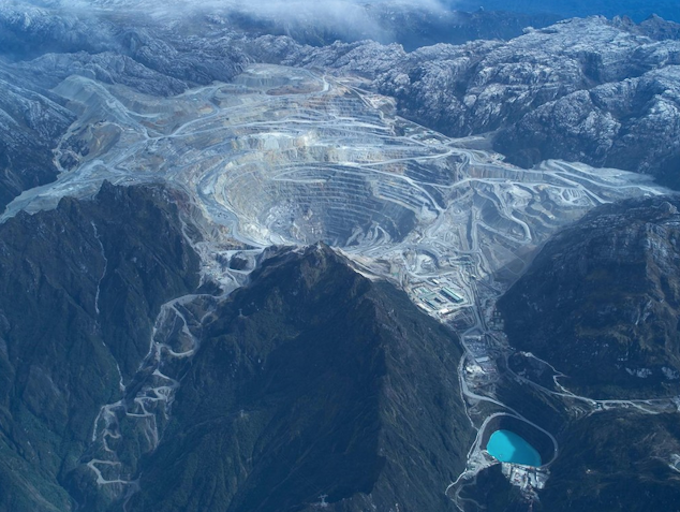
Local elders say that this hole has become “a graveyard for Papuans”.
This hole was created by the discovery of a strange-looking, greenish-black rock on Gunung Jayawijaya (Mount Carstensz) by Dutch geologist Jean Jacques Dozy in 1936.
It took some 20 years before the discovery was brought to the attention of American geologist Forbes Wilson in 1959, who was the vice-president of Freeport Minerals Company at the time.
From 1960 to 1969, the Papuan people lived through a century of great historical significance. It began with a sense of hope and optimism as the Dutch prepared Papuans for independence in 1961.
This independence dream was taken to New York in 1962, only to be abandoned at the mercy of the United Nations, and then to Indonesia in 1963.
The controversial UN sponsored “Act of Free Choice” in 1969, which Papuans called “Act of No Choice”, ultimately sealed the fate of Papuans’ independence dream within Indonesia. It may seem that the world and UN have forgotten Papua’s dream, but Papuans have never lost sight of it and continue to die for or because of it.
The US-based Freeport-McMoRan was given the green light to begin digging this hole behind the scenes during that decade, during which Papua’s fate was controlled by world leaders in their cruel puppet show. For the newly created state of Indonesia, this was an economic blessing, but for Papuans it was a death sentence.
Over the past 60 years, this hole has taken the lives of many Papuan mothers, fathers, and children, creating an endless world of grief and mourning.
Papuans not happy, says Governor Enembe
It was these decade-old wounds and grievances that caused Governor Lukas Enembe, the current governor of Papua’s province, to erupt on February 7, 2022.
“Papuans are not happy. Papuans are not happy in all of Papua. Papuans are the most unhappy people on earth. You take note of that,” he said in a recent video posted by senior journalist Andreas Harsono on his Twitter account.
Gubernur Lukas Enembe: Kehidupan orang Papua tidak bahagia. Orang Papua tidak happy di seluruh Papua. Intan Jaya menangis, Puncak menangis, Nduga menangis, Pegunungan Bintang menangis dan Maybrat menangis. Orang tidak hidup aman di negeri kita sendiri ?https://t.co/VOsuJNOkpe pic.twitter.com/HvTVYo5yXx
— Andreas Harsono (@andreasharsono) February 9, 2022
Papuan Governor Lukas Enembe in the middle: Twitter image
The governor also said that some areas such as Intan Jaya, Nduga, and Star Mountains “cry” with the harsh conditions experienced by the Papuan people.
“Papuans do not live in happiness. Intan Jaya is crying, Puncak is crying, Nduga is crying, The Stars Mountains are crying, and Maybrat is crying. People are crying. People [Papuans] do not live safely in our own country. We were not born for that,” he said.
“We want to live happily. We want to live and enjoy happiness. Papuans have to live happily, that’s the main thing,” Governor Enembe said in a statement he made in a speech circulated on a video on Tuesday, February 8, 2022.
These areas, where the governor is referring to, are among the most militarised in West Papua.
Victor Yeimo, a prominent Papuan, said that over the past three years, Jakarta had sent 21,369 troops to West Papua, some of them referred to as “Satan Troops”, as reported by Arnold Belau on Asia-Pacific Report.
Sadly, this overwhelming military presence in West Papua is not a new phenomenon. Indonesia has been sending military troops equipped with western-made and supplied war machines since 1963.
The West Papua National Liberation Army of Free Papua Movement (OPM-TPNPB) is actively engaged in an ongoing war with Indonesian forces, which is being ignored by the international media.
The grace of Papuan mothers
In spite of the tragedies, grievances and the haunting images that Google displays, one story is rarely shown — The story of Papuan mothers. They are known for their resilience, courage, and indomitable will to live and work, despite the odds being stacked against them.
They are hard-working, compassionate, and strong — the backbone of Papuan society. They sacrifice everything to send their children to school and welcome foreigners with open arms.
There was a recent Tiktok video clip circulating in West Papua and Indonesia which received thousands of views and comments. The video footage featured a young Indonesian migrant weeping while singing in Papuan, the language of the Lani people of the highlands. Her name is Julitha Mathelda Wacano. She works in Tolikara, one of the newly created regions in the highlands of West Papua.
@pemilikcancer #stoprasisme #@olvaholvah.official #kobelumrasatinggaldengandorang#sadikasihselimut ##?? #fypシ ♬ original sound – Wizan Lewa Cidy481 – Tik Toker
The young Indonesian woman singing in the local Papuan language of the Lani people. Video: Tiktok
The following lines are translations of what she wrote on the video below:
I cannot hold this song anymore.
I am a migrant, my hair is straight,
my skin is white, but in Tolikara,
after I return home from office,
food is already prepared on the table.
Who cooks this?” she asks. Then she replied “Mama gunung dorang…” meaning the “mothers from the mountains”.
Julitha Mathelda Wacano
The emotional video depicts the experience of a young Indonesian migrant girl being cared for by people deemed “enemies” by the state in some of the most demonised and militarised areas in Indonesia, due to constant negative representation in media coverage.
She opened a window to the world of Papuan mothers, for others to see the kindness of Papuans in the face of a society segregated by racism and caste.
The video of Julitha singing in the local Lani language has received more than 1500 comments, many of which share their own experiences of the goodness of the Papuan people. Many praise the love and kindness of Papuans, while others praised God and Allah for her story.
Papuan mothers still face so many challenges
Despite their unwavering love for others, Papuan mothers struggle to compete with the might of migrant economic dominance and their modern entrepreneurial skills.
In the eyes of Indonesians, Papuans do not produce anything of value to be traded or sold on either the national, regional, or global market.
Most Papuans produce fresh food, which has its own value and merit for those seeking a healthy lifestyle.
Papuan mothers spend their days sitting in the rain, in the dirt, alongside busy dusty roads. Meanwhile, migrants sell their imported products and gadgets in high-rise buildings, malls, kiosks, and shops, with comfort and convenience.
At sunset and sometimes into the night, if the mothers don’t sell their produce, they have no place to store it — no cool room or freezer– so they either give it away or take it home to be eaten. They have to start it all over again the next morning.
Many of these mothers are torn between taking care of their children, attending constant funeral services for family members, and finding money to send their children to school to participate in the education system that fails them and demonises their identity at every turn.
All roads lead to Rome – West Papua economics
A total of Rp 126.99 trillion (more than US$20 billion) has been distributed to the provinces of Papua and West Papua since Jakarta passed the so-called Special Autonomy Law in 2021. The details of how this figure was distributed throughout the period 2002-2020 are summarized here by Muhammad Idris and Muhammad Idris on compass.com.
Fiscal figure of this type, or any reports provided by those who seek to promote the state’s interests, can be difficult to verify independently, owing to the nature of the mechanism in place by Jakarta to carry out its settler colonial activities on Papuan Indigenous lands. Nevertheless, this type of report gives us some rough insight into what goes on in the region.
Despite such an amount, the poverty rate in these two provinces is nearly three times higher than the national average. Infant, child, and maternal mortality rates are among the highest, and health services and literacy rates are among the lowest in Indonesia.
There is an “all roads lead to Rome” economic system operating in West Papua, to which no matter how much money Jakarta gives to Papuans, it will all end up back in Jakarta, with migrants, security forces, foreign companies, misfits and opportunists.
Unfortunately, Papuan mothers’ hard-earned money ends up in the same hands that control and maintain this brutal settler colonial system.
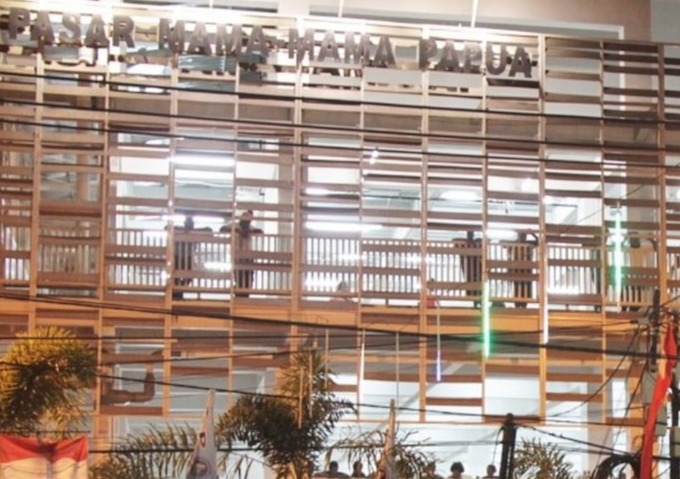
As part of the efforts to empower Papuan mothers, President Jokowi in 2018 toured the five-story building which he ordered to be constructed two years earlier in Jayapura, the capital city.
As it was dedicated to Papuan mothers, it was named “Pasar mama-mama Papua” (Market for Papuan mothers).
The building can accommodate up to 300 traders. Each floor has been allocated for “mama mama Papua” to sell their produce and to display cultural artifacts. The building also houses a school for Papuan children to learn.
Papuan mothers have unimaginable willpower and determination to compete with Indonesian settlers, who have almost total control of the economic system in West Papua.
Their lives and work are shaped by the realities of constant violence and inequality in one of the most heavily militarised regions in the world.
No matter what the odds are, Papuan mothers overcome them with grace and compassion.
This sacred power broke the heart of that young Indonesian woman living in the highlands of the Lani people.
Papuan mothers and their international students
Unfortunately, the majority of Papuan international students whose scholarship funds were threatened to be cut by President Jokowi’s administration are the sons or daughters of these mama-mama Papua.
The students who are now spread across different continents and countries, from North America, Russia, Asia, Europe and Oceania, have united under the name International Alliance of Papuan Student Associations Overseas (IAPSAO) and strongly condemn any slight alteration in the scholarship package that would have a crippling effect on their education.
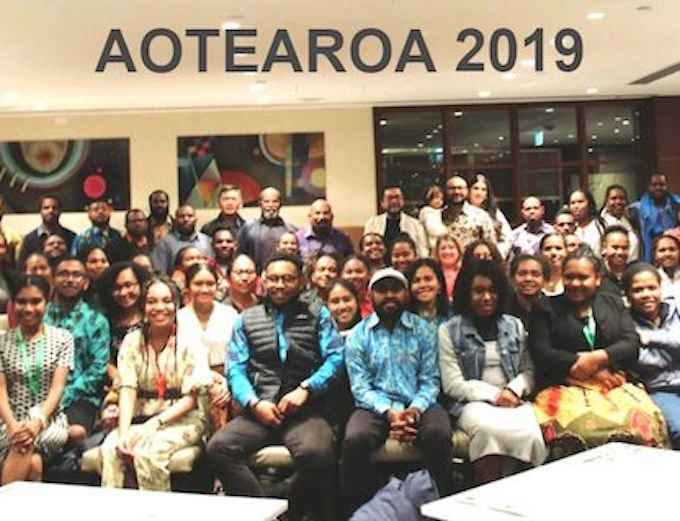
These students overcome so many obstacles, from connecting to the right people within the brutal system, to leaving home, learning new languages, and adjusting to a new cultural system.
The constant loss of their family members back home takes a heavy toll on their studies.
Ali Mirin is one such student who is pursuing a master’s degree in International Relations at Flinders University in Adelaide, Australia.
Mirin came from the Kimyal tribe of Yahukimo region of West Papua. He came to Australia on a student visa in 2019 to study at Monash University in Melbourne but struggled to meet the English requirements.
The university placed him in an English language course before enrolling him in a master’s programme. In the end, he was trapped between international student agencies such as International Development Programme (IDP), university and immigration departments since his two-year required study visa had almost run out, though he had yet to complete his master’s degree.
It was not clear to them why he was not in a master’s programme, but he was struggling to make sense of all the information he was receiving from these various parties.
The combination of covid-19 lockdown, passing of family members in West Papua, frustration with adjusting into a new culture, along with inconsistency in scholarship funds nearly cost everything that his mother worked for to help him achieve this level of education.
Additionally, he had to find a part-time job in Melbourne just to survive and pay rent, which nearly led to his study visa being revoked.
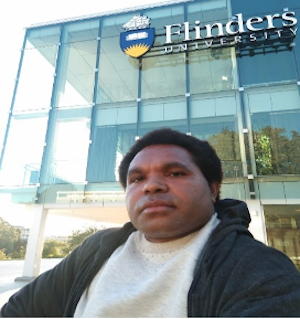
Mirin’s case is only the tip of the iceberg in terms of the challenges faced by Papuan students studying overseas. Almost all Papuan students have dramatic and traumatic stories to share about the obstacles they faced just to receive a scholarship, let alone the difficulties of studying abroad.
Studying in first world industrialised countries like USA, Canada, Australia, New Zealand, the UK, and Germany requires tremendous amounts of money, which the parents of these students will likely never be able to afford in their lifetime.
Papuan Governor Lukas Enembe implemented a policy in 2012 that allows these students to study abroad, based on his own educational struggles in West Papua, Indonesia, and Australia.
The governor knows and understands what it is like to be Papuan (especially from the highlands) and study in Indonesia, let alone overseas.
With all these tragic circumstances Papuans have endured for decades, when the Jakarta government withdraws scholarship funds or changes its policies, Papuan students are shattered.
Papuan mothers, who Jokowi calls “mama-mama”, are the ones most affected by the news of deported or failed Papuan students who are studying abroad.
A new policy needs new minds and hearts in Jakarta
The central government in Jakarta should listen to what students have to say as they clearly stated in Asia Pacific Report on January 27.
Indigenous Papuan representatives should oversee Indonesian and foreign agents and agencies that deal with students’ affairs. Because as long as they are not Papuan, whether Indonesian, American, Australian, or British, it will be difficult for them to fully comprehend the mental trauma and cultural issues that each of the students suffer due to the conditions at home.
Papuan students fail their studies or struggle with them, not because they are unintelligent, but because they are deeply traumatised by the abuse and persecution that their families endure at home.
Most of these result from decades of violence, torture, and denigration of their human value under Indonesia’s settler colonial system in their own homeland.
Whatever the number of expert reports on success and failure stories of education in West Papua, if students’ deepest issues are not being listened to or understood, how can we help them or hope to change things for the better?
The politicisation of these students will continue to cloud Jakarta’s judgment about West Papua as it has for 60 years. Elites in Jakarta forget that these people have no agenda to colonise the island of Java, Hong Kong, Taiwan, Ukraine or build nuclear weapons.
They simply want to live peacefully in their own land and pursue their education.
Jakarta’s policies in West Papua are largely influenced by fear, and worst of all, wrong ideas and misguided judgments. They should be more concerned about a potential global nuclear war between the Western Empire and its allies, and the emerging Chinese-led eastern empire, which poses an existential threat to everyone and everything on this planet.
Indonesians target the wrong people and attack the wrong places — West Papua is not your enemy.
Images of ‘Wonderful Indonesia; and West Papua torture
I wonder if Jakarta searched images of West Papua on Google if they would like what they see. Would they see the truth — the horror, torture, abuse, murder, and exploitation of Papuans at their own hands?
Or would they see their ideals reflected back to them, the current state of terrorism that they manufactured in stolen lands.
These images do not represent the true nature of West Papua and its people, it is Indonesia that is reflected in these images.
Indonesia’s famous national promotional image of “wonderful Indonesia” that has been marketed throughout the world can be best authenticated when it uses the situation in West Papua as a mirror in which to see what Indonesia really is.
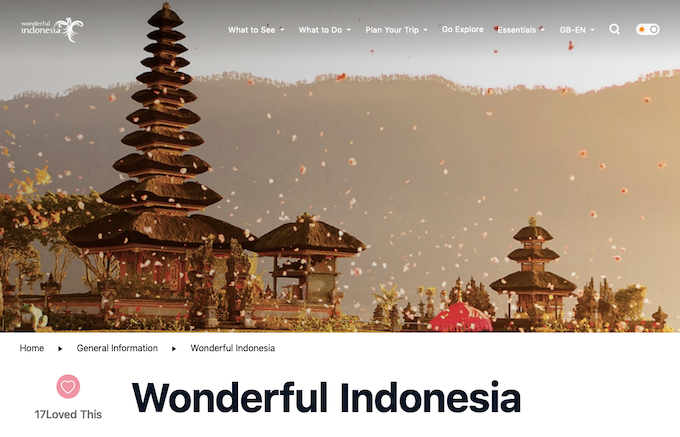
This hallmark of Jakarta’s nation-building image of Indonesia, which has been marketed around the world, can be best comprehended when it uses West Papua’s reality as a mirror to show the reality of Indonesia. In any case,
It may represent Bali or Java, but for West Papua it is just an elaborate ploy to deceive people about the terror image they have been projecting in the region.
Yamin Kogoya is a West Papuan academic who has a Master of Applied Anthropology and Participatory Development from the Australian National University and who contributes to Asia Pacific Report. From the Lani tribe in the Papuan Highlands, he is currently living in Brisbane, Queensland, Australia.
Article by AsiaPacificReport.nz







